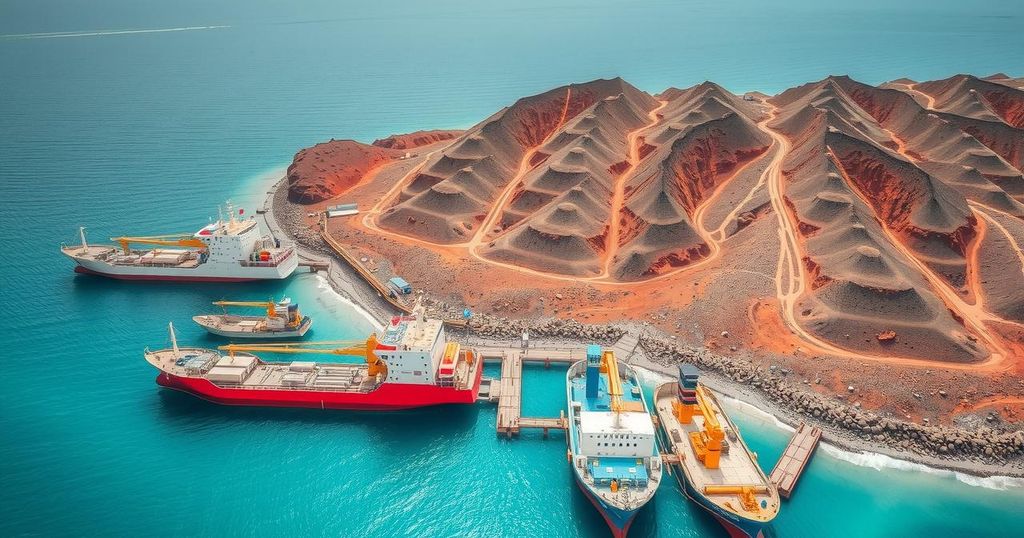Djibouti has emerged as a significant investment hub for Chinese companies under the Belt and Road Initiative, with ventures spanning various sectors. However, the country’s harsh climate and limited agricultural production create dependency on imports. Lake Assal’s salt reserves remain underutilized, though recent Chinese investments aim to change this. The ongoing Red Sea crisis presents potential challenges for these business operations.
Djibouti, located at a strategic point near major maritime routes, has become an appealing destination for Chinese investments, particularly under the Belt and Road Initiative (BRI). Chinese enterprises are engaging in various sectors, including port development, transportation, and mineral extraction. However, Djibouti’s harsh climate and geographical challenges significantly limit its agricultural and manufacturing capabilities, leading to an economy heavily reliant on imports.
Despite having Lake Assal, the world’s largest salt reserve, Djibouti has not fully leveraged this natural asset, stunting potential economic growth for local communities. The acquisition of a previously American-owned salt company by the China Communications Construction Company in 2015 marked a pivotal investment. This firm was reorganized as the Djibouti Salt Investment Company, reflecting China’s commitment to enhancing local industry. Nevertheless, the ongoing Red Sea crisis poses uncertainties for Chinese businesses operating in Djibouti, potentially complicating trade routes and investment strategies.
The Belt and Road Initiative, launched by China, aims to enhance global trade and stimulate economic growth across Asia and beyond through infrastructure development. Djibouti plays a pivotal role in this initiative due to its geographic advantages, providing a crucial transit point for trade flows between Europe, Asia, and Africa. While Chinese investments have flourished in sectors such as transport and mineral resources, Djibouti faces significant developmental challenges. The country’s arid climate restricts agricultural production, rendering it dependent on food imports. Furthermore, the underutilization of natural resources, such as the salt from Lake Assal, has historically hampered local economic growth. Recent investments indicate a potential shift, but external crises, such as the current Red Sea instability, threaten to disrupt this trajectory.
In conclusion, while Chinese investments continue to support economic endeavors in Djibouti, external challenges, including the Red Sea crisis, create a precarious environment for future developments. Although the country possesses untapped resources and strategic trading capabilities, its reliance on imports and limited industrial base could undermine these investments. Moving forward, stakeholders must navigate these complexities to foster sustainable growth and mitigate risks associated with geopolitical tensions.
Original Source: amp.scmp.com






